The establishment of the BRICS Think Tanks Council (BTTC) was proposed at a meeting of the five BRICS countries' think tanks in March 2013 and confirmed by the BRICS Leaders at the eThekwini Summit (Durban, South Africa) later that month.
The main purposes of the establishment of the Council, as encapsulated in the Declaration on the Establishment of the BRICS Think Tanks Council, are to form a platform for the exchange of ideas among researchers, academia and think tanks, to convene the BRICS Academic Forum, and to present policy recommendations and guidance to the BRICS Leaders for consideration.
Global trade relies heavily on Swap mechanisms and currency exchanges that do not benefit the Global South. Research should be done on the use of national currencies in trade and investment among BRICS and its regional partners, trade swap mechanisms and the development of alternative currencies.
BRICS scholars and researchers should study the modalities, guiding principles, and implications of expansion, explore potential frameworks for partnering and working with others under an expanded BRICS.
Critical and emerging technologies, including Artificial Intelligence and language processing advancements, should be studied, and these studies must: analyse the dynamics of technology transfer and knowledge sharing, elevate the capacity for digital governance, and close digital and technological gaps.
BRICS Think Tanks should establish a database of archival documents that would allow the production of monitoring reports on implementation timelines, progress, achievements, and challenges with every declaration undertaken since the establishment of the BRICS.
BRICS scholars and researchers should conduct a comprehensive review of the performance of BRICS with respect to the Sustainable Development Goals (Agenda 2030.) with a view to informing innovative and cooperative measures to expedite the attainment of the SDGs.
The BTTC comprises the Institute for Applied Economic Research (IPEA) (Brazil), the National Committee for BRICS Research (NRC/BRICS) (Russia), the Observer Research Foundation (ORF) (India), China Council for BRICS Think Tank Cooperation (CCBTC) (China), the National Institute for the Humanities and the South African BRICS Think Tank (SABTT) (South Africa), Institute for Political and International Studies (IPIS) (Iran), and the Institute of Foreign Affairs (IFA) (Ethiopia).
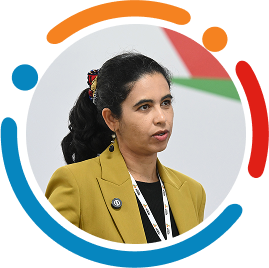
Dr Keiti Da Rocha Gomes holds a degree in Economics from the University of São Paulo (2004), a master’s degree in Economics from the University of São Paulo (2008) and a PhD in Economics from the University of Brasília (2015). Experience in the area of Capital Markets and Macroeconomics, with particular interest in the following topics: monetary economics, balance of payments, international financial system and financial instability.
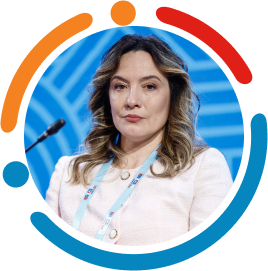
Dr. Victoria Panova is the Head of the BRICS Expert Council – Russia, Vice-Rector of HSE University, Russian W20 Sherpa and Co-Chair of the BRICS Civil Forum. Her research focuses on the club governance (G8/G7, G20, BRICS), new (digital) technologies and internet governance, sustainable development, global governance and security, and humanitarian cooperation. Dr. Panova holds her PhD in History of International Relations from the Moscow State University of International Relations (MGIMO-University, MFA of Russia). She was a visiting fellow (now a life member) at the University of Cambridge, the London School of Economics and Political Sciences (LSE), BRICS Policy Centre in Brazil (PUC-Rio). Dr. Panova is also an alumna of the Asian Forum on Global Governance organized by ORF, India and Bucerius School/Zeit Stiftung, Germany. Since the Russian BRICS Chairship in 2015, Dr. Panova has been Co-Founder of the BRICS Civil Forum and Co-Chair for the Civil BRICS process initiated by the Russian civil society. Since 2015, Dr. Panova is a member of the Council of the Eurasian Women’s Forum.
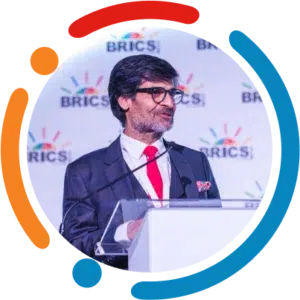
Dr Samir Saran is the President of the Observer Research Foundation (ORF), India’s premier think tank, headquartered in New Delhi. His research focuses on issues of global governance, climate change and energy policy, technology and media, and India’s foreign policy. Samir completed his doctoral studies at the Global Sustainability Institute, UK. He holds a Masters degree in Media Studies from the London School of Economics and Political Science, UK, and a Bachelors in Electrical and Electronics Engineering from Manipal Institute of Technology, India. As ORF’s President and member of the Foundation’s Board, he provides strategic direction and leadership to the foundation’s multiple centres on fundraising, research projects, platform design and outreach initiatives including stakeholder engagement. He curates the Raisina Dialogue, India’s annual flagship platform on geopolitics and geo-economics, and is the founder of CyFy, India’s annual conference on cybersecurity and internet governance. He spearheads the foundation’s efforts to foster new international partnerships and incubate young leaders networks and youth led conversations globally.
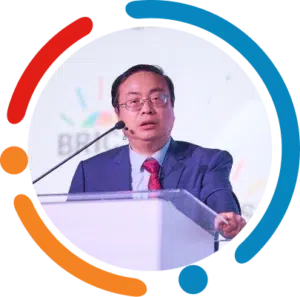
Dr Jin Xin was appointed as Director-General of Research Office at the International Department of CPC Central Committee in 2020. He was the Director-General of China Center for Contemporary World Studies (CCCWS) and an Adjunct Professor. He graduated from Lanzhou University, Graduate School of China Academy of Social Sciences (CASS), Zhou Enlai School of Government of Nankai University (PhD), and China-EU Business School of Management (Master’s Degree). He was a Visiting Fellow at the Center of International Studies, University of Cambridge from 2003 to 2004. He held the posts of Deputy Director of the Information Center, Director of the General Office of the International Department of the CPC Central Committee (IDCPC), Deputy Director-General of the Contemporary World Press, Chief Editor of the Contemporary World Magazine. From 2014 to early 2016, he worked as Deputy Mayor of Chizhou City in Anhui Province. His research fields include China’s foreign strategies, great-power and neighboring diplomacy, the “Belt and Road”, political party politics, social and political trends of thoughts, and world ethno-national study, etc.
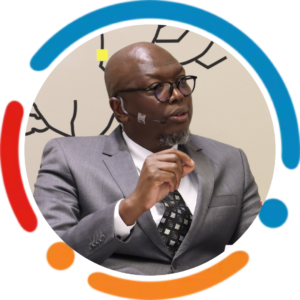
Prof Masoga is a scholar, research leader, and higher education executive whose work sits at the intersection of Indigenous Knowledge Systems, African theology, social justice, and transformation in higher education. He currently serves as Dean of the Faculty of the Humanities at the University of the Free State, providing strategic leadership to 23 departments and advancing engaged, decolonial scholarship within the sector.
An NRF C1-rated researcher, Prof Masoga holds a PhD from the University of the Free State as well as multiple postgraduate qualifications in the humanities and musicology. His career spans senior roles in academia, research councils, and development institutions, including the National Research Foundation, the Development Bank of Southern Africa, the CRL Rights Commission, the University of Venda, the University of Limpopo, and the University of Zululand. Prof Masoga has published extensively in accredited journals and edited volumes on Indigenous Knowledge Systems, African thought, religion, climate change, and community-engaged scholarship. He is Series Editor of the Knowledge Pathing: Multi-, Inter- and Trans-Disciplining in Social Sciences book series, and has supervised numerous master’s and doctoral candidates across disciplines. A respected sector leader, he served as President of the South African Humanities Deans Association (SAHUDA) and sits on multiple national and international boards, editorial committees, and scientific bodies, contributing to debates on curriculum transformation, language policy, and the future of the Humanities and Social Sciences in Africa.
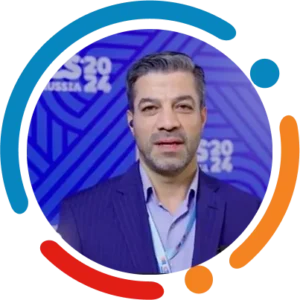
Dr. Alireza Khoda Gholipour (Ph.D)
Director General and Director for Asian Studies, Institute for Political and International Studies (IPIS). The Institute for Political and International Studies (IPIS) was established in 1983 in Tehran as a think tank and policy-planning body of the Iranian Foreign Ministry. This centre has defined its missions and goals within three programmes: research, public diplomacy for elites, and training and educational initiatives. It comprises several departments, including the Research and Studies Department, the School of International Relations, the Department of Education, Archive and Historical Studies, and a rich specialised Library for International Studies. The central mission of IPIS in the field of study and research is to help collect, organise, and develop research and investigate in regional and international fields.
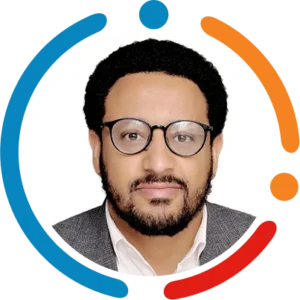
H.E. Mr. Jafer Bedru Geletu is the Executive Director of the Ethiopian Institute of Foreign Affairs (IFA), a foreign policy think tank affiliated with the Ethiopian Ministry of Foreign Affairs (MoFA). He is a seasoned expert in international relations, diplomacy and strategic leadership, with over 17 years of experience in various government roles. Prior to his current position, he served at the Ethiopian Information Network Security Agency (INSA) and as an advisor on political and international relations in the Office of the Ethiopian Prime Minister.

Dr Keiti Da Rocha Gomes holds a degree in Economics from the University of São Paulo (2004), a master’s degree in Economics from the University of São Paulo (2008) and a PhD in Economics from the University of Brasília (2015). Experience in the area of Capital Markets and Macroeconomics, with particular interest in the following topics: monetary economics, balance of payments, international financial system and financial instability.

Dr. Victoria Panova is the Head of the BRICS Expert Council – Russia, Vice-Rector of HSE University, Russian W20 Sherpa and Co-Chair of the BRICS Civil Forum. Her research focuses on the club governance (G8/G7, G20, BRICS), new (digital) technologies and internet governance, sustainable development, global governance and security, and humanitarian cooperation. Dr. Panova holds her PhD in History of International Relations from the Moscow State University of International Relations (MGIMO-University, MFA of Russia). She was a visiting fellow (now a life member) at the University of Cambridge, the London School of Economics and Political Sciences (LSE), BRICS Policy Centre in Brazil (PUC-Rio). Dr. Panova is also an alumna of the Asian Forum on Global Governance organized by ORF, India and Bucerius School/Zeit Stiftung, Germany. Since the Russian BRICS Chairship in 2015, Dr. Panova has been Co-Founder of the BRICS Civil Forum and Co-Chair for the Civil BRICS process initiated by the Russian civil society. Since 2015, Dr. Panova is a member of the Council of the Eurasian Women’s Forum.

Dr Samir Saran is the President of the Observer Research Foundation (ORF), India’s premier think tank, headquartered in New Delhi. His research focuses on issues of global governance, climate change and energy policy, technology and media, and India’s foreign policy. Samir completed his doctoral studies at the Global Sustainability Institute, UK. He holds a Masters degree in Media Studies from the London School of Economics and Political Science, UK, and a Bachelors in Electrical and Electronics Engineering from Manipal Institute of Technology, India. As ORF’s President and member of the Foundation’s Board, he provides strategic direction and leadership to the foundation’s multiple centres on fundraising, research projects, platform design and outreach initiatives including stakeholder engagement. He curates the Raisina Dialogue, India’s annual flagship platform on geopolitics and geo-economics, and is the founder of CyFy, India’s annual conference on cybersecurity and internet governance. He spearheads the foundation’s efforts to foster new international partnerships and incubate young leaders networks and youth led conversations globally.

Dr Jin Xin was appointed as Director-General of Research Office at the International Department of CPC Central Committee in 2020. He was the Director-General of China Center for Contemporary World Studies (CCCWS) and an Adjunct Professor. He graduated from Lanzhou University, Graduate School of China Academy of Social Sciences (CASS), Zhou Enlai School of Government of Nankai University (PhD), and China-EU Business School of Management (Master’s Degree). He was a Visiting Fellow at the Center of International Studies, University of Cambridge from 2003 to 2004. He held the posts of Deputy Director of the Information Center, Director of the General Office of the International Department of the CPC Central Committee (IDCPC), Deputy Director-General of the Contemporary World Press, Chief Editor of the Contemporary World Magazine. From 2014 to early 2016, he worked as Deputy Mayor of Chizhou City in Anhui Province. His research fields include China’s foreign strategies, great-power and neighboring diplomacy, the “Belt and Road”, political party politics, social and political trends of thoughts, and world ethno-national study, etc.

Prof Masoga is a scholar, research leader, and higher education executive whose work sits at the intersection of Indigenous Knowledge Systems, African theology, social justice, and transformation in higher education. He currently serves as Dean of the Faculty of the Humanities at the University of the Free State, providing strategic leadership to 23 departments and advancing engaged, decolonial scholarship within the sector.
An NRF C1-rated researcher, Prof Masoga holds a PhD from the University of the Free State as well as multiple postgraduate qualifications in the humanities and musicology. His career spans senior roles in academia, research councils, and development institutions, including the National Research Foundation, the Development Bank of Southern Africa, the CRL Rights Commission, the University of Venda, the University of Limpopo, and the University of Zululand.
Prof Masoga has published extensively in accredited journals and edited volumes on Indigenous Knowledge Systems, African thought, religion, climate change, and community-engaged scholarship. He is Series Editor of the Knowledge Pathing: Multi-, Inter- and Trans-Disciplining in Social Sciences book series, and has supervised numerous master’s and doctoral candidates across disciplines.
A respected sector leader, he served as President of the South African Humanities Deans Association (SAHUDA) and sits on multiple national and international boards, editorial committees, and scientific bodies, contributing to debates on curriculum transformation, language policy, and the future of the Humanities and Social Sciences in Africa.

Dr. Alireza Khoda Gholipour (Ph.D)
Director General and Director for Asian Studies, Institute for Political and International Studies (IPIS). The Institute for Political and International Studies (IPIS) was established in 1983 in Tehran as a think tank and policy-planning body of the Iranian Foreign Ministry. This centre has defined its missions and goals within three programmes: research, public diplomacy for elites, and training and educational initiatives. It comprises several departments, including the Research and Studies Department, the School of International Relations, the Department of Education, Archive and Historical Studies, and a rich specialised Library for International Studies. The central mission of IPIS in the field of study and research is to help collect, organise, and develop research and investigate in regional and international fields.

H.E. Mr. Jafer Bedru Geletu is the Executive Director of the Ethiopian Institute of Foreign Affairs (IFA), a foreign policy think tank affiliated with the Ethiopian Ministry of Foreign Affairs (MoFA). He is a seasoned expert in international relations, diplomacy and strategic leadership, with over 17 years of experience in various government roles. Prior to his current position, he served at the Ethiopian Information Network Security Agency (INSA) and as an advisor on political and international relations in the Office of the Ethiopian Prime Minister.
H.E. Nickolay Mladenov is the Director-General of the Anwar Gargash Diplomatic Academy (AGDA) in Abu Dhabi. He has extensive experience in diplomacy, peacebuilding, and international affairs, having served as the United Nations Special Coordinator for the Middle East Peace Process (2015–2020) and as Special Representative for Iraq (2013–2015). Prior to his UN roles, he held senior positions in the Bulgarian government, including Minister of Foreign Affairs and Minister of Defence, and was a Member of both the European and Bulgarian Parliaments.
At AGDA, he leads the UAE’s premier institution for diplomatic training, research, and international engagement. His academic background includes an MA in War Studies from King’s College London and a BA in International Relations from the University of National and World Economy in Sofia. He is also a visiting fellow at the Washington Institute for Near East Policy and serves on several international advisory boards. In 2021, he was awarded the Grand Star of the Order of Jerusalem for his contributions to peace in the region.

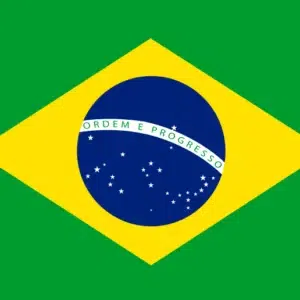
Address:
Seps – Setor de Ed. Públicos Sul 702/902, Bloco C
Torre B – Térreo
CEP 70390-025 – Asa Sul – Brasília – DF
Tel: (55-61) 2026-5353
Tel: (55-61) 2026-5427
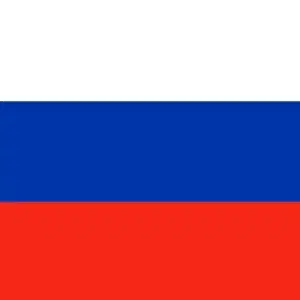
Address:
11 Pokrovsky Bulvar,
Moscow,
109028
Tel: +7 495 772 95 90 *28866
Email: info@bricscouncil.ru
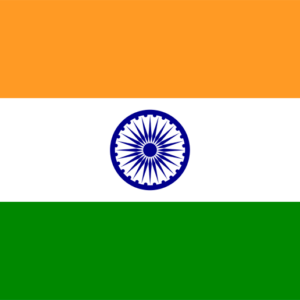
Address:
20, Rouse Avenue Institutional Area, (Near Bal Bhavan, ITO)
New Delhi
110002
India
Tel: + 91 011 353 3200
Email: contactus@orfonline.org
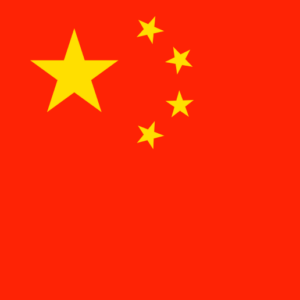
Address:
No. 4,
Fuxing Road,
Haidian District,
Beijing
Tel: +86 10-83908089
Email: ccbtc_brics@163.com
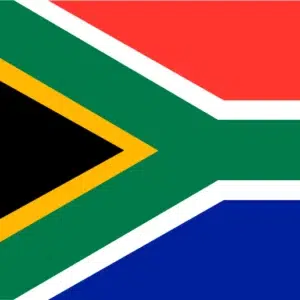
Address:
2nd floor, 24 St Andrews, Johannesburg, Parktown
Gauteng
2193
Tel: +27 11 480 2300
Email: info@nihss.ac.za
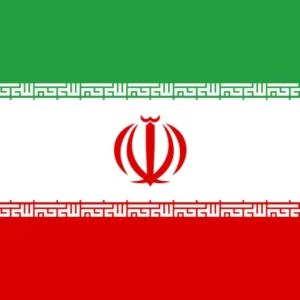
Tel: 22802671-5
Email: info@ipis.ir
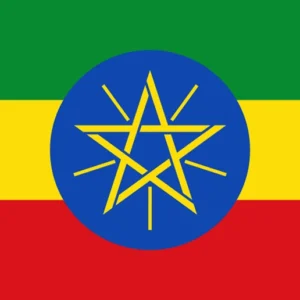
Address:
At Ghion Hotel front gate,
Addis Ababa
Tel: +251 115 53 19 55
Email: ifa.office@ifa.gov.et
